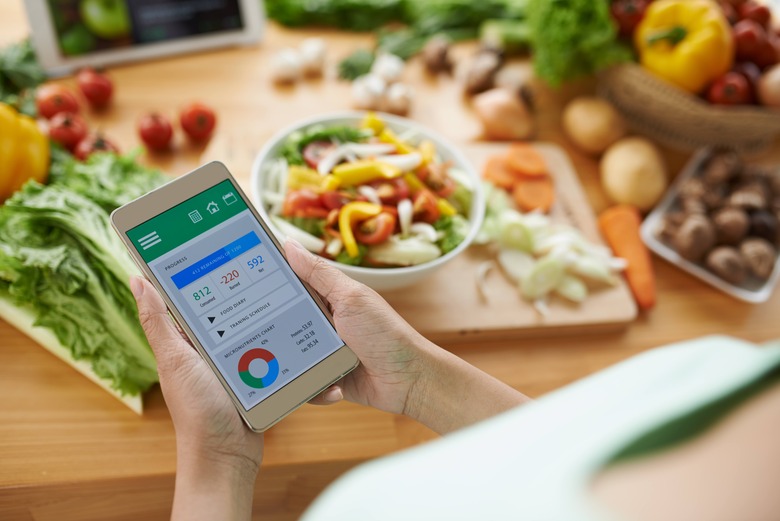Most Diet Apps Aren't As Healthy As We Think
There's an app for everything nowadays. It may seem like a cinch to download an app that monitors your daily dietary intake and perhaps (gently) shames you when you gorge on a cheeseburger, but new research from scientists at the George Washington University School of Medicine found that 75 percent of the most popular healthy eating apps out there did not recommend daily amounts of certain food groups or take into account important sub-groups like dark leafy greens, whole grains, and healthy fats, according to Tech Radar.
The study, led by Tania Dhawan and presented at the annual American Heart Association Conference, analyzed 32 health and fitness apps available on Google Play and the iTunes App Store, and compared their advice to the U.S. Department of Agriculture 2015–2020 Dietary Guide for Americans.Although many of the apps fell short, 72 percent took into account several of the top five government-recommended guidelines for healthy eating: healthy eating patterns, appropriate calorie limits, nutrient-dense foods and beverages, a variety of foods and beverages, and social support.
"It is important that application developers address this information gap so as to safely and effectively achieve the applications' stated goals," researchers said.
